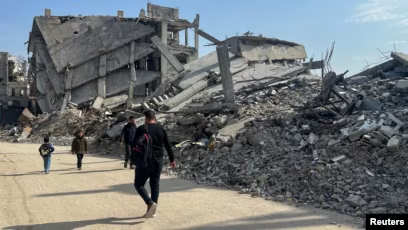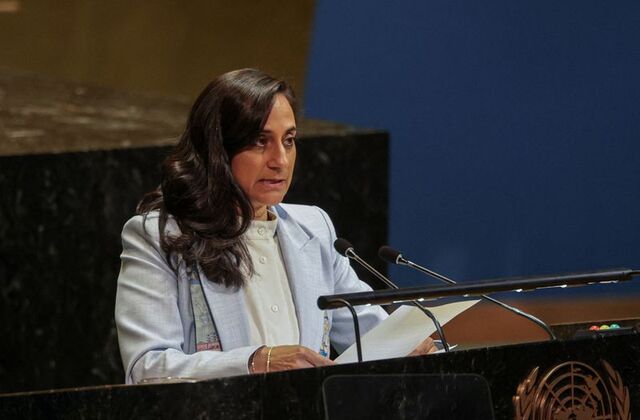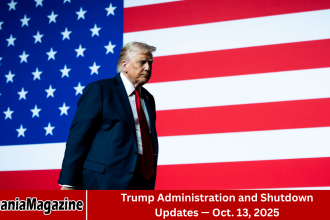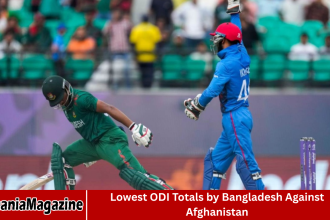The latest developments in the Middle East have once again drawn global attention to Israel’s diplomatic position. Following reports that Israel carried out a targeted strike against Hamas leaders operating from Qatar, the ripple effects are spreading beyond the battlefield.
- Israel’s Longstanding Diplomatic Challenges
- Why Qatar Matters in the Diplomatic Equation
- Global Reaction and the Risk of Isolation
- The U.S. Factor in Israel’s Diplomatic Standing
- Arab World Reactions: Fragile Ties Under Threat
- Europe and the Growing Divide
- Asia’s Role: India, China, and Beyond
- Economic Risks of Diplomatic Isolation
- Expert Perspectives on Israel’s Strategy
- Could Israel Navigate Its Way Out of Isolation?
- The Bigger Question: Legitimacy vs. Security
- FAQs
- Why is Qatar significant in Israel’s diplomatic challenges?
- How could the U.S. react to Israel’s strike in Qatar?
- What impact could this have on the Abraham Accords?
- Could Israel face economic consequences from diplomatic isolation?
- Is it possible for Israel to avoid long-term isolation?
- Conclusion
This moment raises a critical question: Could such an attack push Israel further toward diplomatic isolation at a time when global opinion about its policies is already deeply polarized? As tensions escalate and new alliances form across the Middle East and beyond, Israel faces a crossroads that may redefine its international standing for years to come.
Israel’s Longstanding Diplomatic Challenges
Israel has always been both a regional powerhouse and a lightning rod for controversy. Since its founding in 1948, the state has struggled to balance its security needs with international diplomacy. Its relationships with neighboring Arab countries, global superpowers, and emerging players like China and India have been shaped by cycles of conflict and fragile ceasefires.
In recent years, Israel managed to score major diplomatic wins, including the Abraham Accords in 2020, which normalized relations with the United Arab Emirates, Bahrain, Morocco, and Sudan. Yet despite these gains, Israel continues to face sharp criticism over its treatment of Palestinians, its military actions in Gaza, and its settlement expansions in the West Bank. The Qatar strike adds another layer of complexity, potentially undermining years of careful diplomatic maneuvering.
Why Qatar Matters in the Diplomatic Equation
Qatar is not just another Middle Eastern state. It plays a unique role as both a financial hub and a mediator in regional conflicts. Known for hosting high-level diplomatic talks, including negotiations with the Taliban, Qatar has positioned itself as a central player in global diplomacy. It also hosts the largest U.S. military base in the Middle East, giving it strategic significance beyond its size.
Striking targets in Qatar therefore carries diplomatic risks that extend far beyond a single incident. It risks angering Washington, complicating Israel’s ties with Arab neighbors, and undermining its image as a state committed to long-term peace. Some analysts suggest this attack could be seen as a red line, testing the patience of allies who have already been cautious about supporting Israel’s hardline policies.
Global Reaction and the Risk of Isolation
The immediate reactions to the reported strike were telling. Western governments, already under pressure from human rights organizations, expressed concern about Israel’s actions. The European Union, which has repeatedly called for restraint in the Middle East, warned that military escalation in Qatar could destabilize broader diplomatic channels. At the same time, Arab and Muslim-majority countries condemned the strike as a violation of sovereignty.
Diplomatic isolation is not an abstract concept. History shows that countries facing widespread condemnation and sanctions often struggle economically and politically. South Africa during apartheid and Russia after the annexation of Crimea are two prime examples. While Israel benefits from strong U.S. support and robust trade ties with technology and defense markets, the Qatar incident could test whether that backing has limits. If even Washington begins to question Israel’s choices, the risks of isolation will multiply.
The U.S. Factor in Israel’s Diplomatic Standing
The United States remains Israel’s most important ally. Billions in military aid flow to Israel each year, and Washington consistently blocks anti-Israel resolutions in the United Nations Security Council. However, American patience is not infinite. Recent U.S. administrations, from Barack Obama to Joe Biden, have shown frustration with Israel’s settlement policies and heavy-handed military responses.
Former U.S. officials have already warned that the Qatar strike could complicate Washington’s own regional strategy. A senior diplomat reportedly said, “The United States cannot afford instability in Qatar, not when its largest airbase in the region is at stake.” If the perception grows that Israel’s actions undermine American interests, Washington may recalibrate its unconditional support.
Arab World Reactions: Fragile Ties Under Threat
The Abraham Accords were hailed as a breakthrough, but they remain fragile. The Qatar strike could give Arab states that normalized relations with Israel second thoughts about their commitments. Already, Bahrain and the UAE face domestic pressure from their citizens who are skeptical about closer ties with Israel. A high-profile attack on Qatari soil could intensify those doubts, making governments more reluctant to deepen engagement with Tel Aviv.
Meanwhile, countries that never normalized relations, such as Saudi Arabia, may find new reasons to delay or reject talks. Riyadh has always balanced its pragmatic need for security cooperation with its religious and political responsibilities in the Muslim world. The Qatar strike provides fuel for voices urging caution, warning that Saudi Arabia cannot align itself with a state seen as attacking fellow Gulf neighbors.
Europe and the Growing Divide
European countries have long been caught between their support for Israel as a democratic partner and their criticism of its policies toward Palestinians. The European Union is Israel’s largest trading partner, accounting for nearly one-third of its exports. Yet the Qatar incident could push Europe toward tougher measures. Some European lawmakers have already called for reassessing trade deals and suspending arms sales in light of Israel’s regional actions.
Public opinion in Europe is also shifting. Recent surveys show growing skepticism about Israel’s policies, particularly among younger generations. If European governments perceive that their own citizens view Israel as an aggressor, they may feel pressured to take diplomatic steps that further isolate the country.
Asia’s Role: India, China, and Beyond
Asia is another critical frontier for Israel. India has become one of Israel’s largest defense partners, importing billions in weapons technology. China, while not a military partner, has invested in Israeli technology and infrastructure projects. However, both countries prioritize stability in the Middle East, where they rely heavily on energy imports.
If Israel’s actions threaten Gulf stability, Asian powers may rethink their partnerships. India, in particular, faces its own delicate balance with Arab states, where millions of its citizens work as expatriates. Any escalation that draws Arab anger could force New Delhi to distance itself from Israel to protect its broader interests.
Economic Risks of Diplomatic Isolation
Diplomatic isolation is not just about headlines or speeches—it carries real economic costs. Israel’s economy, while strong in technology and innovation, relies heavily on exports and foreign investment. If diplomatic tensions rise, Israel could face restrictions on arms sales, tech partnerships, and international banking access. Already, global campaigns advocating boycotts, divestments, and sanctions (BDS) have gained traction in some Western markets.
The Qatar incident could provide new momentum to such movements, increasing financial pressure. Israel’s robust economy gives it some resilience, but prolonged isolation could slow growth and undermine its global competitiveness.
Expert Perspectives on Israel’s Strategy
Analysts are divided about whether Israel miscalculated or acted strategically with the Qatar strike. Some argue it was a necessary move to disrupt Hamas operations abroad, signaling Israel’s willingness to target enemies wherever they hide. Others contend that the long-term diplomatic costs outweigh any short-term military gain.
Professor Daniel Levy, a former Israeli peace negotiator, has warned, “Israel risks becoming a country that wins battles but loses the war for legitimacy. Striking in Qatar may prove one battle too far in the court of global opinion.” This sentiment underscores the growing tension between Israel’s military doctrine of deterrence and its need for diplomatic acceptance.
Could Israel Navigate Its Way Out of Isolation?
While the risks are real, Israel is not without options. Diplomacy is a dynamic process, and even controversial actions can be managed with the right strategy. Israel could attempt to reassure allies by framing the Qatar strike as a counterterrorism measure rather than an attack on sovereignty. It could also seek backchannel negotiations to smooth tensions with Washington and European capitals.
Furthermore, Israel may lean on its technological and defense exports as leverage. Countries that benefit from Israeli innovation in fields like cybersecurity, medicine, and agriculture may be reluctant to sever ties completely. Whether these relationships are strong enough to withstand the fallout remains to be seen.
The Bigger Question: Legitimacy vs. Security
At its core, the Qatar incident forces Israel to confront a dilemma that has defined its history: how to balance security imperatives with the pursuit of legitimacy on the world stage. Striking Hamas leaders abroad may bring temporary relief from threats, but if it accelerates Israel’s drift toward isolation, the costs could far outweigh the benefits.
This is not a new struggle, but the stakes are higher than ever. In a multipolar world where global power is shifting, Israel cannot assume automatic support from allies. Every military action is also a diplomatic gamble, one that could shape its future in profound ways.
FAQs
Why is Qatar significant in Israel’s diplomatic challenges?
Qatar is a critical hub for diplomacy, hosting international talks and housing a major U.S. military base. Any strike on Qatari soil risks angering both Washington and Arab states, amplifying Israel’s diplomatic challenges.
How could the U.S. react to Israel’s strike in Qatar?
While the U.S. remains Israel’s strongest ally, Washington may view the Qatar strike as undermining its strategic interests. If American policymakers feel Israel’s actions destabilize the Gulf, U.S. support could be less unconditional.
What impact could this have on the Abraham Accords?
The Qatar incident could weaken the fragile trust built through the Abraham Accords. Countries like the UAE and Bahrain face domestic pressure to distance themselves from Israel, and Saudi Arabia may be less likely to pursue normalization.
Could Israel face economic consequences from diplomatic isolation?
Yes, diplomatic isolation often carries economic risks. Israel could face restrictions on arms sales, trade, and investment. Campaigns like BDS may also gain traction, increasing financial pressure.
Is it possible for Israel to avoid long-term isolation?
Israel can still manage the fallout through strategic diplomacy, reassurance of allies, and leveraging its technological strengths. However, it must weigh its security needs against the growing risk of alienating global partners.
Conclusion
The reported strike in Qatar has thrust Israel into a new diplomatic storm, one that could accelerate its path toward isolation if not carefully managed. While the country has long demonstrated resilience in navigating complex international landscapes, the global reaction to this latest move underscores how fragile its alliances remain.
Israel now faces a pivotal moment: either recalibrate its approach to balance security with legitimacy or risk drifting into greater diplomatic isolation at a time when global power dynamics are shifting rapidly. The choices made in the coming months will not only shape Israel’s foreign relations but also define its role in the evolving international order.








